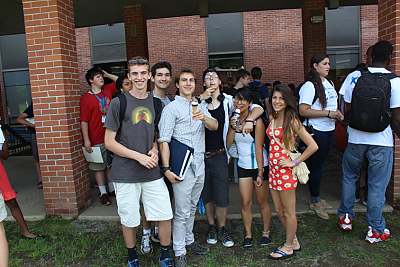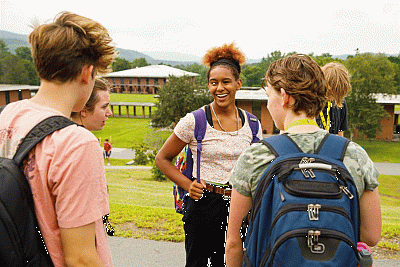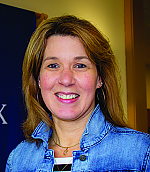Electives:
Providing students with opportunities to apply what they are learning in more conventional academic offerings. Course content is intentionally varied. These courses are true electives, and students are encouraged to enroll in a course that may not ordinarily be available in a typical high school curriculum.
General Elective courses may include:
Drawing and Illustration
High School Math: Algebra II Preparation
High School Math: Pre-Calculus Preparation
Sports & Culture
Visual Storytelling
Digital Photography
Welcome to Theater
Vermont Field Ecology
Film Studies
Music History
Learn about Painting
Drawing and Illustration: This course is an introductory course in drawing, but it will also provide continued instruction for seasoned mark makers. Emphasis is on strategies, methods, and techniques for translating three-dimensional form and space onto a two-dimensional surface using the language of line, value, and the illusion of depth and texture. Mark making and its expressive and descriptive qualities will be examined.
High School Math: Algebra II Preparation: This course is intended for higher level math students preparing to take Algebra II this fall. Specific content includes the study of algebraic functions, their graphs, and trigonometric basics. Building on a strong foundation of mathematical knowledge, this class is designed to develop students’ critical thinking and problem-solving skills, helping them to prepare for Algebra II.
High School Math: Pre-Calculus Preparation: This course is intended for higher level math students preparing to take pre-calculus this fall. Students will review and be introduced to the concepts necessary for a smooth transition into pre-calculus.
Sports and Culture: Join us as we examine the role sports play in our society. Using materials from a variety of sources, students will examine the relationships sports have to individuals and social organizations. The course will cover current issues in sports, such as the nature of competition, performance enhancement, violence, gender issues, and multi-million-dollar contracts.
Digital Photography: The best camera in the world is the camera in your pocket. Whether you use a phone, DSLR, or point and shoot, come and learn the basics about camera functions, lighting, and composition. After quick mini-lessons, practice using your camera outside or in easy-to-create studio set-ups. Students will explore camera terminology, composition, storytelling, and post processing. We’ll examine student’s work in online critique sessions and “how to” post-processing demonstrations. This class will encourage everyone to “get out” and start taking amazing images
Welcome to Theatre: Students will learn how to harness their artistic voices and turn their ideas into performances. The students will work as an acting company functioning in various roles: actor, writer, and stagehand. Join in as we experience theatre through improvisation, movement, vocals and collaboration. As a group we will define areas of interest to create short scenes and characters. We will add and refine material as needed for a showing of work to be determined by the students at the end of the course.
Vermont Field Ecology: Learn about local wildlife, plants, and ecosystems, along with other basic concepts of ecology. Take field trips to local areas, such as streams, ponds, wetlands, forests, and meadows to study ecosystems and to practice scientific observation and data collection. Students will keep a field notebook, design forestry studies, conduct water chemistry tests, and sample ponds and streams for macroinvertebrates. Organisms will be observed using microscopes back in the lab. Students will be expected to hike over varying terrain and be outside for most classes.
Visual Storytelling: This course is for students who want to explore the techniques and possibilities of visual media as a tool for communication and storytelling. Using a smartphone, DSLR, or other image capture device, students will learn to make still photographs and videos within a multimedia context to create fictional and non-fictional short stories. Applications from the Adobe Creative Suite will be used to edit, organize, and output stories in engaging and interactive ways online. Students will also be introduced to various forms of Visual Communication being used in contemporary society. What stories do you want to tell?
Film Studies: Students will learn the language of film: how and why shots are composed to create a response, the imagery and visual references that drive narrative, the role of sound and music, and much more. We will explore classic and contemporary films, and some texts that have been adapted into film, with opportunities for student input on our film selection process.
Music History: Join us as we explore the music of the 60s and 70s. What was happening? How was music influenced by events of the time? How were people influenced by the music? How did America music evolve through these decades? This discussion and listening based course will look at exactly that. We will listen to and learn about influential groups and historical events and how they came together to make amazing music. We’ll discuss things such as; protest songs, rock n roll, R&B, funk, soul, the civil rights movement, the Vietnam War, and more.
Learn about Painting:This course is an introduction to painting with an overview of elements, principles, materials, and brush strokes. Students will experiment with different techniques to design art on paper and canvas with watercolor and acrylic paint. Explore risk-taking in a safe environment, and practice giving and receiving supportive feedback. This is an opportunity to take a visual journey to develop, grow, and become more competent and confident when creating art.
Academic Prep:
Academic Prep is offered three evenings each week. This provides a structured time for students to review the class work of the day and/or prepare the work required for the next day or for ongoing class projects. Students are able to work alone, in groups, or in a supervised setting.


